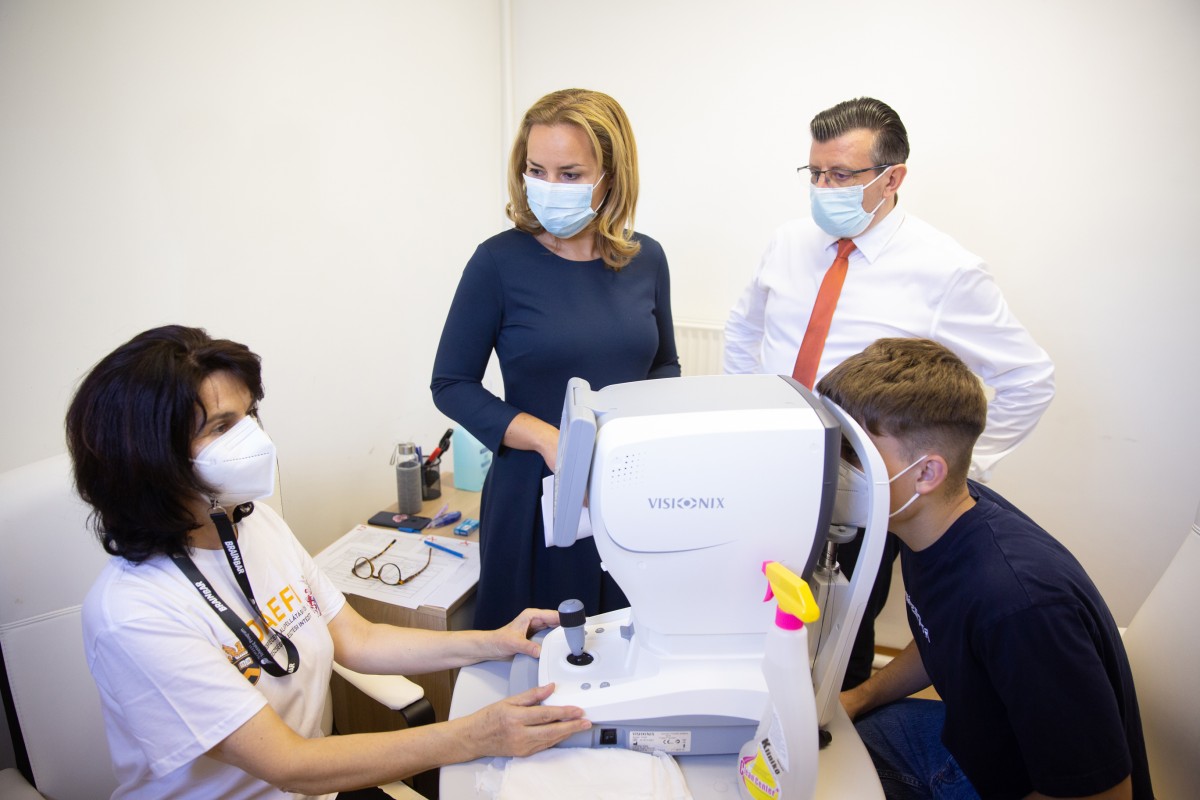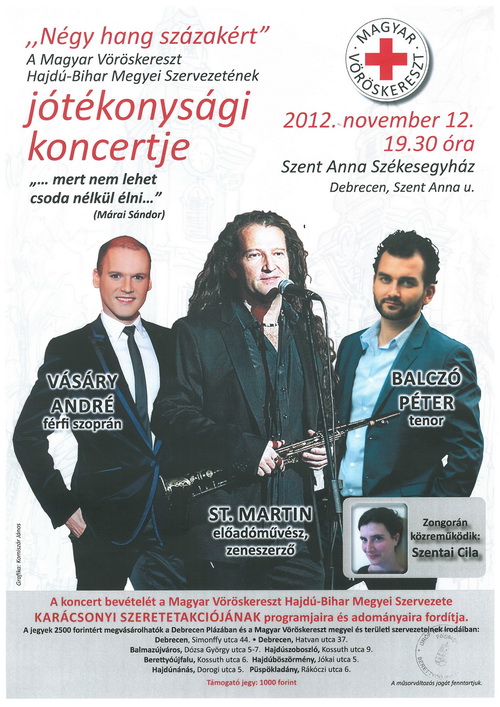One of the cornerstones of the Debrecen Caring City program is the health screening of school-age children, which was launched in 2019 by the municipality and the Debrecen Institute for Primary Care and Health Development (Daefi) and the University of Debrecen. The continuation of the program was prevented in 2020 by the coronavirus epidemic but was restarted in the 2021/22 school year.
Diána Széles, Deputy Mayor of Debrecen and Csaba Papp, Director of the Debrecen Institute for Primary Care and Health Development, held a press conference on 4 October 2021 at the institute’s health center at 1 Pósa Street, where screenings take place. Here, practically every day of the school year, they are able to receive a total of 100 children a day, so a total of 16,000 primary and secondary school students – 2nd, 4th, 6th, 8th, 10th, 12th grade – medical and nursing students can be screened every school year. Compulsory examinations (such as a complete physical medical examination, measurement of height and weight, measurement of blood pressure, examination of goosefoot and spine problems, hearing, vision, examination) are supplemented by special ophthalmic and audiological instrumental examinations and a cardiological ECG examination. is. Complex and regular health screening of this age group at this settlement level, affecting all students regardless of school administrator, is likely to be unique and unparalleled.
At the briefing, Diánes Széles said, among other things, that solving health screening in this way is not only suitable for continuous monitoring of the health status of a given age group, but it is also a great relief for parents not to have to go after certain tests with their child. but these tests can take place in one place, one day. And for cases that require further medical help, not only by handing over the findings – of course, all parents receive the screening results of their child – but also by drawing the attention of the parents concerned and helping them to continue to explore the problems in special care. For example, only today, two children have been diagnosed with hearing loss that requires further attention.
Csaba Papp, director of the Debrecen Institute for Primary Care and Health Development, said, among other things, that this form of health screening creates equal opportunities, does not interfere with the course of education – as all necessary examinations are performed in one day. They can also fill the time between tests with games (table football, table tennis). In the 2019/2020 school year, due to the epidemic situation, unfortunately, only half of the planned screenings – 8,300 – could be carried out, and 6 of them found, for example, children who were at risk of sudden cardiac death.
Today, they all have pacemakers, and in this way have very good life prospects. It is also instructive that 51 percent of the 2nd-grade children surveyed had goosefoot and spine problems. But it is not only this program that is able to screen out cases that threaten such a tragedy. Visual and hearing problems can also be found to cause learning difficulties, without which a child of otherwise good ability may be lost. Now it turns out that due to digital education, forced homestay, the number of dental problems has doubled compared to the previous screening. In preparation for the examinations to be carried out in the current school year, Daefi also purchased a new set of hearing examination equipment and devices worth HUF 10 million and ophthalmic examination equipment worth HUF 3 million, with the significant support of the local government.
Diána Széles also said that within the framework of the Elderly Month (October), the staff of the Debrecen Institute of Primary Care and Health Development had already started the voluntary individual risk assessment (blood pressure, blood pressure and measurement, abdominal circumference measurement, smoking habits, alcohol consumption habits, mental health) at service sites. Any permanent resident of Debrecen of retirement age may participate in these examinations, which may give an idea of the health status of the elderly during the epidemic period, on a voluntary basis for the remainder of October at the following times and places:
- October 5. 14: 00-16: 00 Csapó u. 94.
- October 6. 14: 00-16: 00 Erzsébet u. 5.
- October 7. 13: 30-16: 00 hours Sútor u. 3.
- October 13. 14: 00-16: 00 Thomas Mann u. 45.
- October 19. 14: 00-16: 00 Kandia u. 4 / B.
- October 20. 14: 00-16: 00 Deák Ferenc u. 7.
- October 21. 14: 00-16: 00 Szabó Kálmán u. 33.
Debrecen City Hall Press
Photo: János Miskolczi


















